Dog Chewing Paws: Should You Be Concerned?

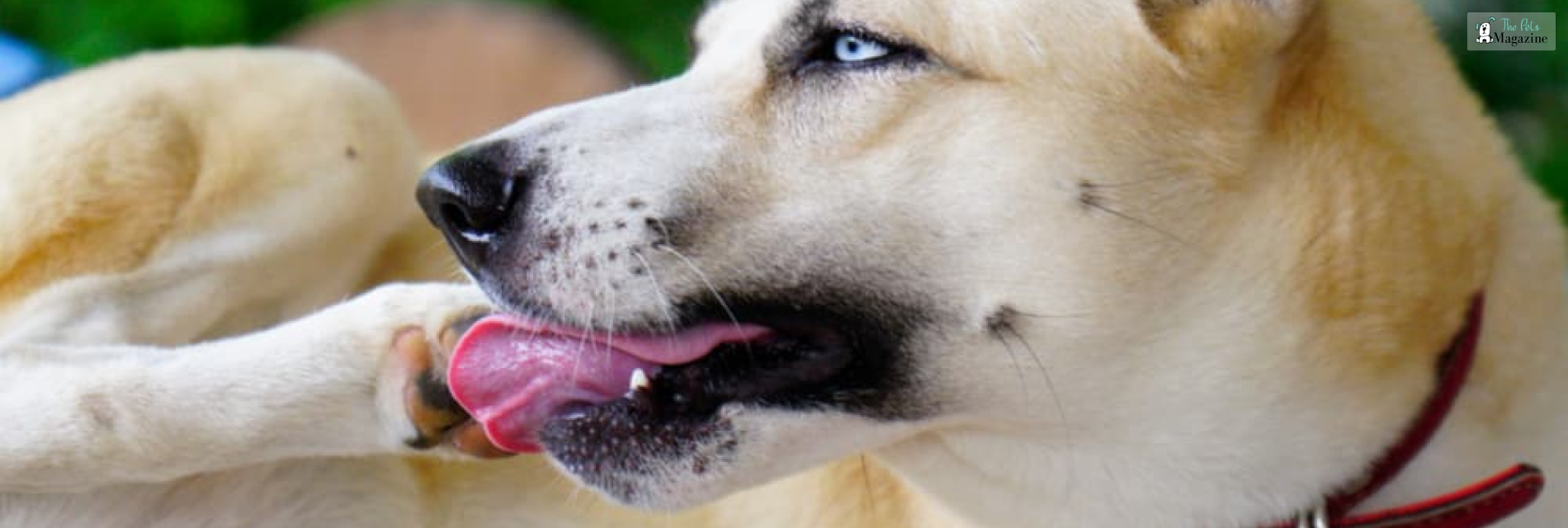
Ever notice your dog licking and chewing their paws like there’s no tomorrow and wondering how to get them to stop? Understanding what’s causing their incessant chewing is the first step to resolving the issue and promoting their well-being.
In this article, we’ll explore some of the most common causes of dogs chewing their paws so you can get to the root of the problem and find the best solutions. Your dog depends on you, so let’s dive in and get them back to chewing on appropriate toys instead of their paws.
Why do dogs chew their paws?
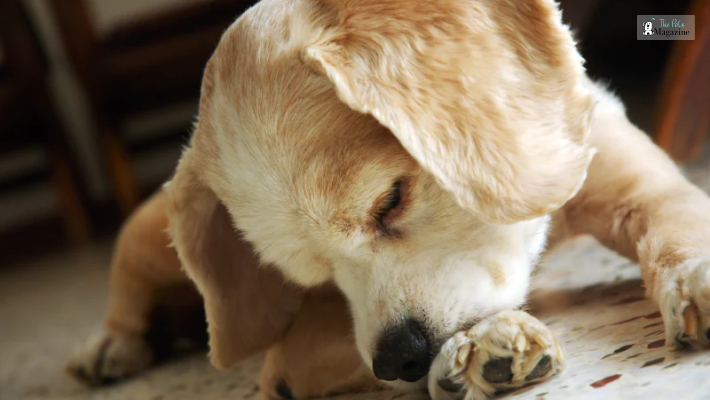
Dogs lick and chew their paws for a variety of reasons. Many of these reasons are nothing to be alarmed about. For instance, you may notice that your dog is licking their paws as part of their normal grooming process. In some cases, you will see a dog chewing its paws because they are bored or stressed. However, if you notice that your dog is continuously licking or chewing in a specific spot on its paws then it may indicate underlying issues such as –
Medical Causes of Dog Chewing Paws
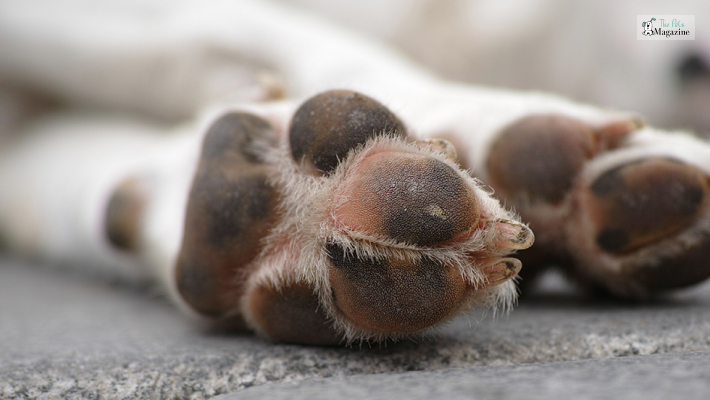
If your dog is constantly chewing their paws, it’s usually a sign that something isn’t right. The medical causes for this behavior include:
Dermatitis or Allergies
Frequently, dogs chew their paws due to some kind of skin irritation like dermatitis or allergies. The itchiness leads them to gnaw at their paws for relief. Common allergens for dogs include certain foods, pollen, mold, and fleas. You may need to do an elimination diet or allergy testing to determine the cause. Anti-itch medication and frequent bathing can help relieve symptoms.
Injuries
Your dog could have a cut, sore, or splinter in their paw that’s causing discomfort. Carefully check your dog’s paws for any visible injuries and clean or bandage them as needed. You should also have a vet examine the paws to ensure there are no internal injuries.
Parasites
Fleas, ticks, and mites can cause itching and irritation that leads to chewing. Apply a flea and tick preventative regularly, and talk to your vet about medication if there’s an infestation.
Infections
Bacterial or yeast infections of the paws can also trigger chewing behavior. Your vet can examine your dog and may need to do testing to determine if there’s an infection present. Antibacterial or antifungal medication may be required to clear up the infection and stop the chewing.
With the proper diagnosis and treatment, you can get to the root cause of your dog’s paw chewing and help them find relief. Be patient through the process, and with time and care their paws will heal and the urge to chew should subside.
Behavioral Reasons Dogs Chew Their Paws
Chewing paws can be a sign your dog is feeling anxious, bored, or frustrated. Dogs are social creatures and separation anxiety is common. If your dog mostly chews their paws when you’re away, it could be a way for them to cope with missing you. Providing interactive dog toys, puzzles or chew toys and limiting alone time may help.
Boredom is another culprit. Without mental and physical stimulation, dogs may turn to chewing paws out of boredom. Make sure your dog gets plenty of playtime, walks, training, and interactive toys to keep them engaged.
Solutions and Treatments for Dog Chewing Paws

Chewing paws are usually a symptom of an underlying issue, so it’s important to determine the cause in order to find an effective solution.
Here are some of the most common reasons dogs chew their paws and how you can help relieve the problem.
Allergies or Skin Irritation
Dogs may chew their paws due to allergic reactions or skin irritation from things like pollen, mold, chemicals, or harsh soaps. You can try the following things to alleviate the symptoms:
- Bathing your dog to remove any potential allergens from their fur. Use a hypoallergenic shampoo and lukewarm water.
- Give your dog an antihistamine, like Benadryl. Check with your vet for proper dosage based on your dog’s weight.
- Using hydrocortisone cream on the paws to relieve inflammation.
- Keeping your dog indoors on high-pollen days and vacuuming frequently to minimize allergens in the home.
Anxiety or Boredom
If you think that your dog chewing paws is out of anxiety, stress, or boredom then there are certain things you can do to make them feel better. These include the following:
- Give your dog interactive dog toys to play with to keep them stimulated when alone. Puzzle toys and chew toys are great options.
- Exercising your dog regularly to release pent-up energy and anxiety. Even taking short walks or playing in the yard can help.
- Provide a safe space for your dog like a crate where they feel comfortable.
- Ask your vet about anxiety medication if the problem persists.
- You can also use bitter apple spray, lemon juice, or cayenne pepper on the paws may also help deter chewing.
Other Medical Issues
In some cases, an underlying medical issue like a skin infection, gastrointestinal issue, or external or internal pain can lead to excessive paw chewing. It’s best to have your vet examine your dog if chewing is frequent or intense. They can check for any medical causes and may recommend medication, a change in diet, or other treatments based on their diagnosis.
Redirecting the behavior
The key is determining the underlying cause so you can properly redirect your dog’s chewing habit. Provide appropriate chew toys to redirect your dog’s chewing urge to an acceptable object. With time, patience, and consistency, you can help eliminate your dog’s paw chewing behavior by addressing the root cause and providing alternative outlets for chewing and play. But if the problem continues for more than a couple of weeks, it’s best to consult your vet to ensure there are no medical issues and get advice tailored to your dog’s specific situation.
Final thoughts
Dogs chew their paws for several reasons, from medical issues to boredom to habit. Now that you know what’s behind this behavior, you’re equipped to help your furry friend. Address any medical causes first, then make sure your dog has plenty of exercise and play.
Give them interactive dog toys to keep them occupied when alone. Be patient through the process, as breaking a habit can take time. With your support, your dog can kick this annoying habit and keep their paws chew-free. Stay vigilant though, as dogs may return to chewing out of boredom or anxiety. But with your help, their paws will be safe and your dog will be happier and healthier.






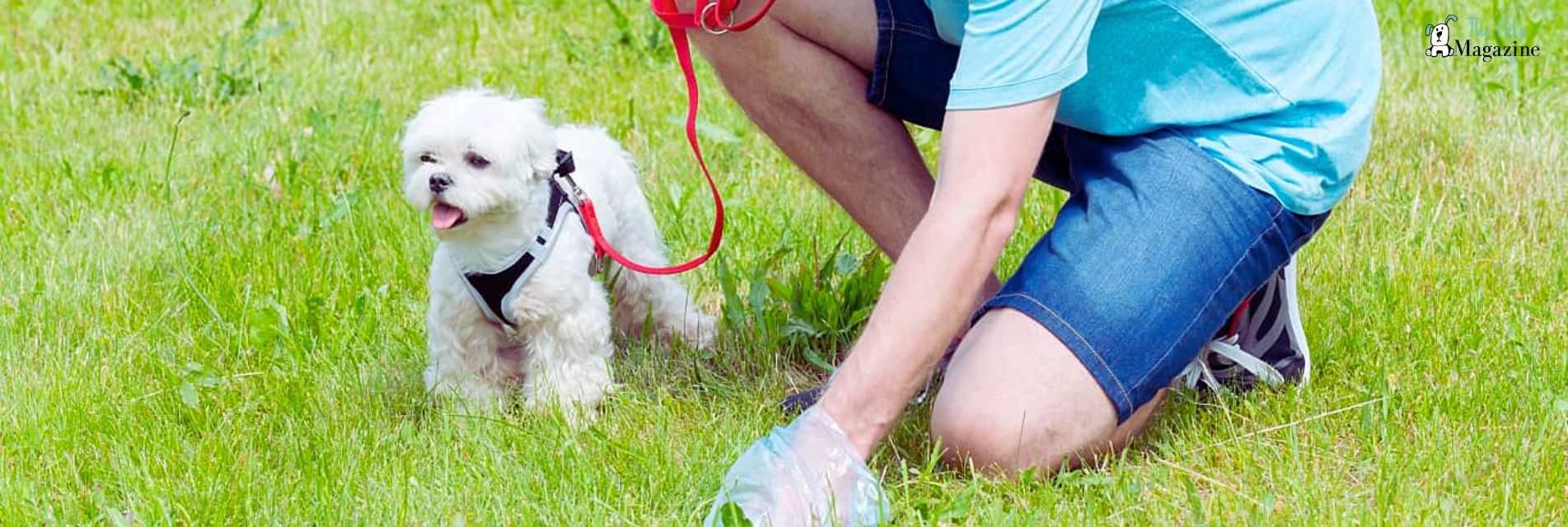
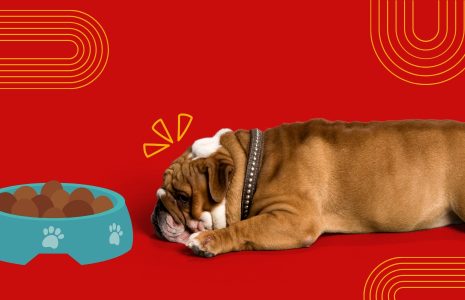
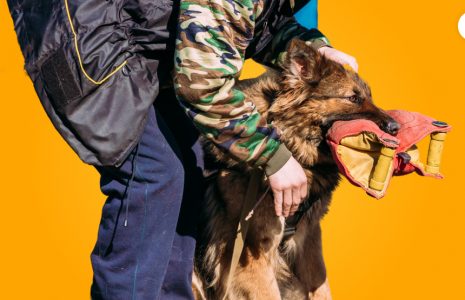
Leave A Comment